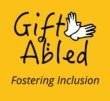In today’s world, creating accessible spaces and products is no longer just a nice-to-have; it’s a necessity. In Singapore, a city known for its innovation and forward-thinking approach, accessible design is gaining traction across various sectors. Whether you’re an architect, a business owner, or a tech developer, understanding the best practices in accessible design can make a significant difference in creating an inclusive environment for everyone. Here are some of the best practices being implemented in Singapore.
Universal Design PrinciplesUniversal design is about creating environments that can be used by all people, to the greatest extent possible, without the need for adaptation or specialized design. In Singapore, this concept is embraced in public spaces, buildings, and transportation systems. The Building and Construction Authority (BCA) has been a strong advocate for universal design, promoting guidelines that ensure buildings are accessible to everyone, regardless of their abilities.
Inclusive Public Spaces
Singapore’s commitment to accessibility is evident in its public spaces. Parks, community centers, and recreational areas are designed with accessibility in mind. For instance, Bishan-Ang Mo Kio Park features wheelchair-friendly pathways, accessible restrooms, and tactile paving for the visually impaired. These features ensure that everyone can enjoy the green spaces and recreational activities that the park offers.
Accessible Transportation
Transportation is a crucial aspect of accessibility. Singapore’s Mass Rapid Transit (MRT) system is a prime example of how inclusive design can be integrated into public transportation. The MRT stations are equipped with elevators, ramps, tactile guidance systems, and audible signals, making it easier for people with disabilities to navigate. Additionally, public buses are designed with low floors and wheelchair spaces, ensuring that everyone can travel comfortably and independently.
Digital Accessibility
In the digital age, accessibility extends beyond the physical environment. Digital accessibility ensures that websites, apps, and digital content are usable by people with disabilities. The Infocomm Media Development Authority (IMDA) in Singapore has introduced the Web Content Accessibility Guidelines (WCAG), which provide a framework for creating accessible digital content. Businesses are encouraged to follow these guidelines to ensure their digital platforms are inclusive.
Collaboration and Community Engagement
Creating accessible environments requires collaboration between various stakeholders, including government bodies, private companies, and the community. In Singapore, initiatives like the Enabling Masterplan bring together different sectors to work towards a common goal of inclusivity. Community engagement is also crucial, as feedback from people with disabilities helps identify areas for improvement and ensures that their needs are met.
Continuous Improvement and Education
Accessibility is an ongoing journey. Continuous improvement and education are essential to keep up with evolving needs and technological advancements. Workshops, training programs, and awareness campaigns are conducted regularly in Singapore to educate designers, developers, and the general public about the importance of accessible design.
In conclusion, Singapore is making significant strides in accessible design, ensuring that its built environment, transportation systems, and digital platforms are inclusive. By adhering to universal design principles, engaging the community, and prioritizing continuous improvement, we can create a society where everyone has equal opportunities to participate and thrive. Accessible design is not just about compliance; it’s about building a future where everyone belongs.
Join us in this meaningful journey towards a society where everyone is included. Together, we can unlock opportunities and build a future where everyone has equal access and the chance to thrive.
To register with us for Workshops, visit the link: https://giftabled.sg/contact-us/

